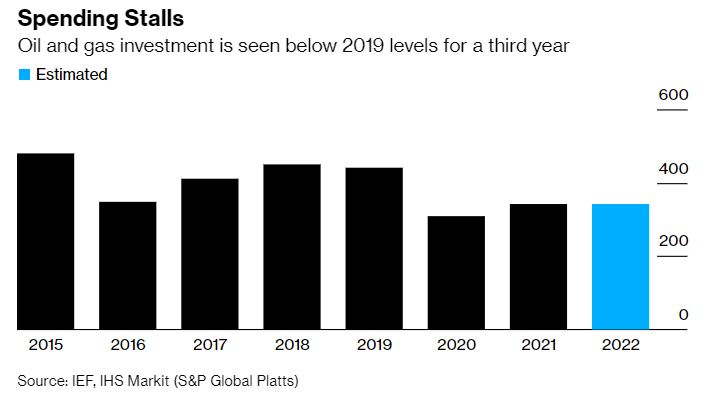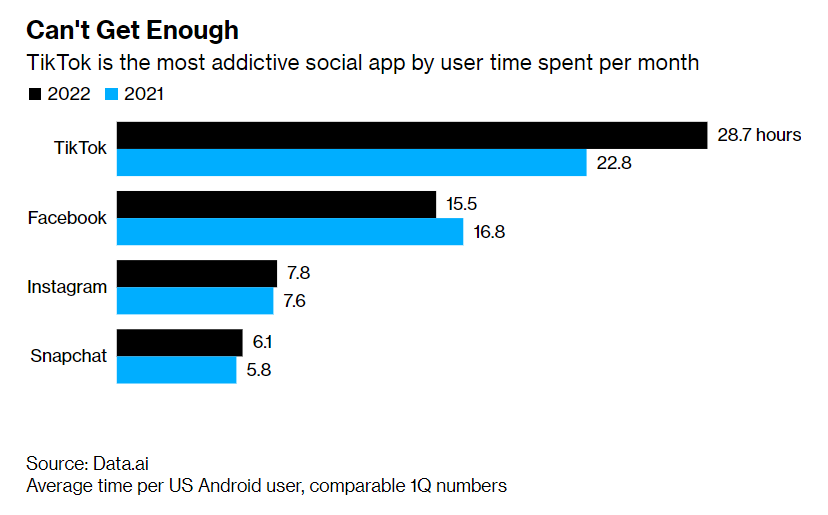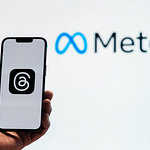Welcome to Episode 64 of The Transcript Podcast
Episode Summary:
In this episode, we discuss the Fed call, whether demand is really softening and Facebook taking on Tiktok.
The episode is based on yesterday's newsletter which is available on Substack: The free version is available here.
This week, we have made available a transcript of this podcast, with relevant images and quotes, for ALL subscribers this week. Find it after the show notes below. Become a paid subscriber to support our work.
Show Notes
00:00:00 Introduction
00:00:15 Demand Softening?
00:02:27 The Fed Call
00:04:30 Brakes on the Housing Market
00:06:20 A Lot of Talk about Oil
00:08:11 Facebook Takes on Tiktok
00:12:37 Conclusion
Episode Transcript
Introduction
[00:00:00] Scott: Welcome everyone to a new episode of The Transcript podcast. You've got me, Scott Krisiloff, I'm editor of The Transcript, along with Erick Mokaya who's our lead author. We sent out a new issue of the newsletter last week, and we saw some signs that demand may be slowing.
Demand Softening?
For the past several weeks, we've been talking about how, even though markets have been getting concerned, we haven't seen signs of demand slowing at all. I'm still not totally convinced that this is a clear signal, which is part of the reason why we put a question mark in the headline if demand's slowing. But nonetheless, we did see some quotes that were suggesting that demand has slowed. Erick, any thoughts on that?
"We are, again, starting to see some signs of demand softening, which is exactly what we want. We don't want it to crash. We want to bring the economy into a safe position and in balance with supply and demand." - Federal Reserve Bank of Philadelphia CEO Patrick Harker
“Our ability to pass pricing on to the market as an example, because of inflation, continues to be more challenged, obviously, with consumer demand softening significantly today versus a year ago” - Winnebago Industries (WGO) CEO Michael J. Happe
"We got sequentially better on comps throughout the quarter, which is encouraging, but that being said, I think the consumer is softer," - CarMax (KMX) CEO Bill Nash
[00:00:38] Mokaya: I'm curious to know what makes you think demand is not softening . If you look at all the transcripts that we've seen in the past two weeks, I would say like 10% of them say that there's demand softening. Most of them are [saying] everything is okay, everything looks good, our pipeline is strong, backlog very heavy. So I get why you could put a question mark on it. I'm a bit convinced that there could be some demand softening actually. Maybe they're a bit too reluctant to say it.
[00:01:06] Scott: Yeah, I mean, I think anecdotally demand is definitely starting to soften, but I think in terms of the quotes that we pulled out, it doesn’t seem definitive to me. And I think part of that is probably the source of the quotes. Like the main quote that was saying that demand slowed was from S&P Global Market Intelligence, the chief business economist, which as an economist, I just automatically discount economists. Like part of what we do at The Transcript that I think is so powerful is that we actually are gathering quotes from business leaders, people who have actual data on the economy, aren't just looking at the secondary data or the echo data. I haven't seen in any of these quotes that we pulled out there, a clear important note of the economy from a business standpoint that was saying that they saw demand softening. I think CarMax was the closest to a company that has a lot of touch points that says there is some softening of demand, but they said sequentially better comps throughout the quarter. So it was kind of a half in half out comment on demand being softer. But that said, it's hard to believe that demand couldn't be softening given what's going on in the stock market, given what's going to interest rates. I think that it's starting to soften probably.
The Fed Call
[00:02:27] Mokaya: Yeah, I agree. The Fed chair had two meetings last week and was talking to the Senate committees which was really interesting. What I noticed is the intention to really -- he emphasizes the intention to bring down inflation at all costs. One of the researchers that I've read this past week also suggests that that could be a switch from maybe having a Fed put to actually having a Fed call. Any thoughts on that yourself?
"At the Fed, we understand the hardship high inflation is causing. We are strongly committed to bringing inflation back down, and we are moving expeditiously to do so…Over the coming months, we will be looking for compelling evidence that inflation is moving down. We can’t fail at that task.” - US Federal Reserve Chair Jerome Powell
[00:02:52] Scott: We've talked about the Fed call. Six months ago, we started calling it a call instead of the put. So I'm glad that somebody is adopting our language at least, but the main thing I've actually been thinking about this week is that usually my expectation is that a stock market would bottom when recession is clear and the Federal Reserve then starts to loosen. In this case, in the last week and a half it's very clear that a recession is/was coming or that's at least where the mindset is. But it's not so clear that the Fed is ready to start loosening. There's nothing that I've seen, that the Fed is ready to come in with looser policy. That's why I personally still tilt a little bit bearish here on when is the Fed really going to get rattled by markets selling off? And at this point, Jerome Powell and the rest of the Federal Reserve representatives who have been speaking have been very clear that the market is reacting exactly as they would expect it to. They don't seem the least bit rattled. What do you think about that, Erick?
If the Fed does not see evidence that inflation is turning, it may not welcome unwinds of the tough financial conditions stance that it has advocated so strongly. It may fear that an unwind in equity market weakness before clear evidence of a turnaround in inflation will reduce pressure on spending, slow the closing of the supply-demand gap, and help keep inflation undesirably high. This is the opposite of the Fed put and basically suggests that the Fed may push back against equity market gains until it is comfortable that disinflation is a lock - in other words, a Fed call." - Standard Chartered
[00:03:57] Mokaya: I mean, it's pretty interesting. Clearly what you can see is that the Fed are unbothered by the market. And in fact, they would expect the market to continue being rattled. Their focus right now is inflation. They would not want to cushion the market in any way. So no expectation of the Fed jumping in to help out. So going forward, I would say they're really intent on raising rates until a point where from the words of the Fed chair, that they definitively see some conclusive evidence that inflation is slowing down. And of course with November elections around the corner, they really want that down as much as possible.
Brakes on the Housing Market
The Fed's stated determination to curtail inflation through interest rate increases and quantitative tightening has begun to have the desired effect of slowing sales in some markets and stalling price increases across the country. While we believe that there remains a significant shortage of dwellings, and especially workforce housing, in the United States, the relationship between price and interest rates is going through a rebalance." - Lennar (LEN) Executive Chairman Stuart Miller
Something else that I also noticed, which is one of the things they've been focused on is the housing market. The housing market is slowly shutting off. It's actually becoming easier for people to rent than buy now because the mortgage rates are significantly up, I think around 6% now. And that's putting huge breaks on the housing market and that's a market that the Fed is watching very closely. Do you think that can change their mind in terms of how they're doing rates, especially the spike in mortgage rates?
[00:05:04] Scott: I don't know if it's gonna change their mind immediately. It probably has to get a little bit more painful in the housing market before it really changes the Fed's mind. Housing is clearly softening. Housing markets are slower than they were, and it certainly feels again, like we talked about last week, like the road runner on the edge of the cliff ready to fall, but it certainly hasn't quite gone yet. I think another quote that you picked up that was really interesting with respect to housing was from Lazyboy talking about furniture sales slowing. So this is not just the housing market for homes themselves, but all of the retail and items that go along with the house that were so hot during the pandemic. The other thing I was gonna point out on the housing thing was that obviously if housing starts to soften, then you start to see bank softening. So that's something that really starts to hit the financial sector because our money center banks are so levered to the housing market. And so, depending on the way that this all unfolds, you can certainly start to see some of the impacts that could make its way through those sectors, which are early recession indicators. These are leading sectors of the economy because they're so interest rate sensitive.
A Lot of Talk about Oil
[00:06:20] Mokaya: Another market that has been impacted this past few weeks and which has been the focus of the administration is of course the energy markets. Gas prices are significantly up. And we picked a lot of quotes from the energy markets that supply is real tight and it will be for a couple of years because CapEx or at least investing in this area -- we've been under investing in this area for a couple of years, especially the pandemic the last two years. The ExxonMobil CEO was saying that it may take up to three to five years to rectify the situation as it is. What's your take on the energy markets, especially because they seem like a very significant political play going into the election season? And at the same time, they're significant in terms of the global markets. It's one of the areas that impacts inflation a lot directly or indirectly.
[00:07:12] Scott: Yeah, it's interesting because obviously there's so many components that affect inflation. And in fact, the Central Bank says that it looks at core inflation, which is excluding energy, but from a psychological standpoint, energy and oil prices specifically are still the psychological driver of inflation. It was interesting to read that Citigroup quote, especially where they're forecasting $140 barrel oil, because you have an additional demand that's still coming online that was offline with the China lockdowns, and you don't have supply being able to rise fast enough to meet that demand.
It should not be a surprise or shock if what we're looking at are oil prices of $140, a barrel or somewhere around that range within the next three to four months going into the future." - Citigroup (C) SVP for Global Energy & International Affairs at S&P Carlos Pascual
From an inflation standpoint, you and I have been looking and seeing a lot of indicators that inflation is going to start to peak and come down. But if energy prices can't come down because of structural reasons, then it's going to be hard to see inflationary psychology come down along with inflation numbers coming down, which again would keep the Fed tighter, more hawkish for longer.
Facebook Takes on Tiktok
"We're basically shifting from having most of the content that you see in Facebook and Instagram come from your friend or follow graph, to now, you know, over time, having more and more of that content just come from AI recommendations. And as the AI recommendations get better, you get access to, you know, not just the content from the people who you follow but the whole universe of content that's out there. Our AI system can choose based on what it knows about you and what you personally are going to be interested in and learn about, what you want to see." - Meta (FB) CEO Mark Zuckerberg
[00:08:11] Mokaya: Yes, definitely. So something that I wanted to maybe close on is Facebook and TikTok. You're a big fan of Facebook, but increasingly Facebook is turning. There is something I've been reading also this week about them changing from being focused on the social graph now to the interest graph, which is very similar to what TikTok is doing. So it's like Facebook is changing the entire business to become more like TikTok in order to beat TikTok. So normally, yes, it's okay to copy. They've copied a lot of stuff from [each other], but this one is like a change of the entire business model. What's your take on that?
[00:08:54] Scott: This is why I still think Mark Zuckerberg is one of the top five CEOs in the country and should not be underestimated because literally last week we pulled a quote that was from TikTok, talking about how they have this structural advantage over Facebook because they're an entertainment platform and Facebook is a social platform and I think that that resonated really true to me because ultimately people care about the entertainment value of these things. They don't care about necessarily the social value except to which it is entertainment value. And that is TikTok’s actual competitive advantage here. And so not a week removed from that, all of a sudden we're picking up quotes from Facebook saying it's not about being a social platform, it's about being an interest graph, which is about how do you make our product even stickier? How do you make it more than our entertainment product? Which I just think Facebook's ability to reinvent itself, to continue to evolve, to look forward and hit new modalities of which the metaverse may not come to pass, but it definitely could totally displace the entire world. It's something I really admire about Zuckerberg and Facebook and I think it makes it a formidable competitor that shouldn't be discounted certainly. Probably shouldn't be 12 times earnings, but any thoughts, Erick?
[00:10:13] Mokaya: Yeah, I agree. This is a significant change and as I was listening to you, one of his commencement addresses at the Harvard Business School, and you could tell the way he talks of the journey from the dorm room to actually becoming - - he didn't intend to build a company that would be the networking site for a lot of people, for around a fifth, actually is it a third of the planet logging into one of the Facebook apps. So I think what you see is definitely that ability to reinvent itself when needed. When there was a shift towards mobile, they shifted and now that the world is obsessed with TikTok, they want to take on TikTok. They're not scared. They also, at the same time, have the ability to build a metaverse and also to be part of that, if it works out. I'm not convinced it will. I'm very skeptical about the metaverse and its ability to change the universe, I would say, but I mean, they're trying, and they're investing as much as they can to make sure that they have their hands and feet at all places where there's potential that they could be places where people connect to in the future.
“…the social graph was just a poor substitute for the interest graph. All people are looking for from their so-called “social” media is just media they are interested in. Now Meta has realized their error, is burning the social graph boat, and is going all-in on being a “discovery engine..This isn’t just adding a new way to display content to friends. This is an abandonment of the idea that, until now, has defined Facebook: the social graph. It represents a shift in how we should think about social media products” - Napkin Math: Facebook’s Capitulation
I log into TikTok and once you scroll down, they try to predict what you want. And that's where I think the world is at now. People are less about finding out what their friends are up to. They just want to know what's funny, what's interesting to them that if you can predict that I liked the last football video, or at least I enjoyed it, then you can serve me more of this. Depending on the time I'm spending on that video, that would actually give you a better clue than looking at my friends, because my friends also have their own interests that I don't want to keep updated with. In fact, you go to Facebook to check out birthdays only. Other than that, TikTok is where you go for entertainment. So I think he has a case to make in terms of him trying to replicate TikTok. And I saw some statistics that TikTok is actually where people are spending a lot of time presently. I think we’ll include that graph in The Transcript to this podcast, but definitely, TikTok is a formidable opponent and they're taking them on. If you're an investor, you want to see them do that more often. You don't want them relegated to the island of irrelevance I would say. Any thoughts or should we close there for today?
Conclusion
[00:12:37] Scott: I think that's probably a good place to close.
[00:12:39]Mokaya: All right. We'll be off next week. We'll not be having a newsletter next week, but the week after, we'll be back to preview the earning season. So thank you for joining us this week. See you again in two weeks. Bye.

















Share this post